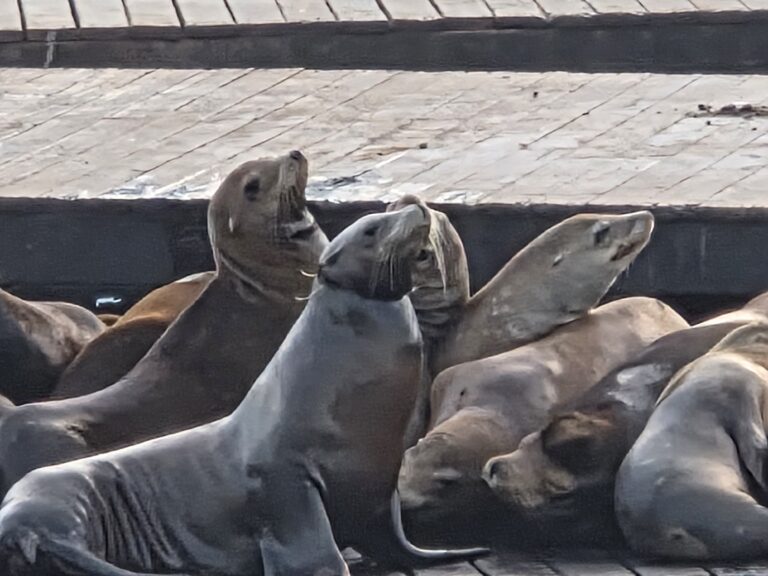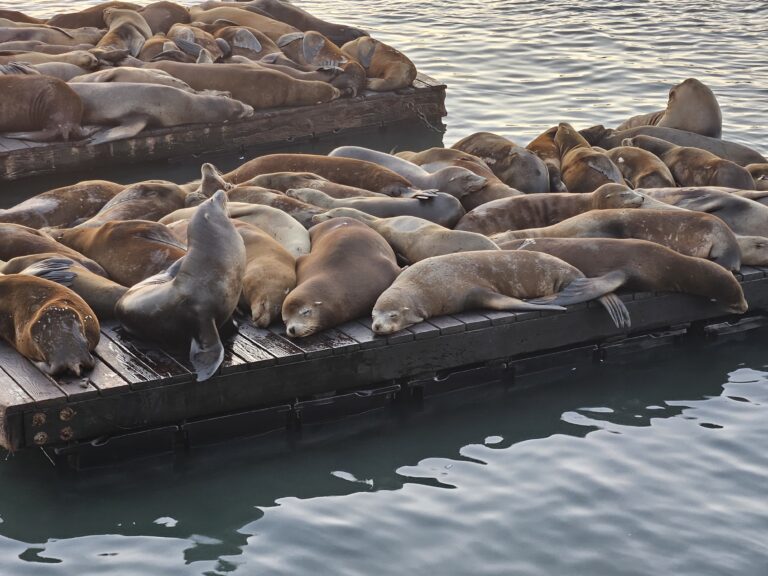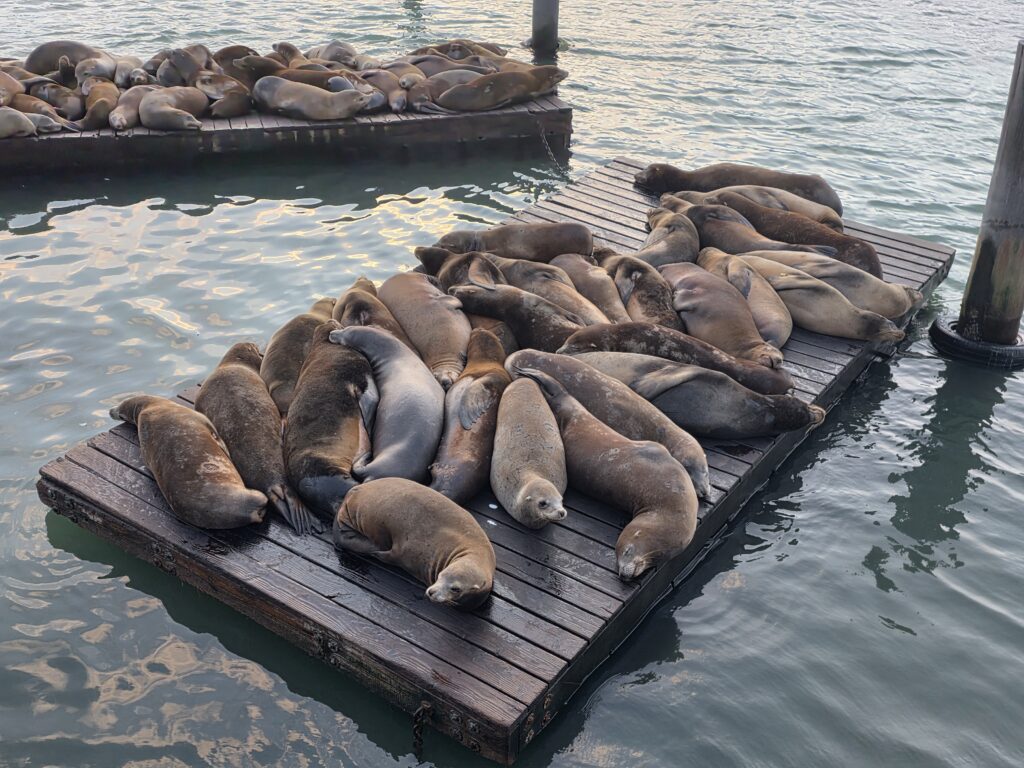Along the golden shores of California, seals bask in the Pacific sunshine — calm, curious, and full of life.
Their cheerful faces have long symbolized the serenity of the sea.
But this idyllic picture wasn’t always so peaceful.
In the early 20th century, overfishing, pollution, and industrial activity caused seal populations to collapse. Hunting and oil extraction pushed them to the brink of extinction.
The turning point came when people finally stopped watching and started listening — hearing nature’s call for help.
The Rebirth of Protection – Where Science Meets Empathy
Today, California stands as one of the world’s leading hubs for environmental conservation.
Organizations like the Marine Mammal Center work tirelessly every day to rescue, heal, and release injured or stranded seals back into the wild.
Since its founding, the center has treated tens of thousands of animals — a success not only biological, but profoundly moral.
Researchers and volunteers go far beyond rescue work: they collect data on ocean temperature, microplastic levels, and human impacts on marine ecosystems.
The findings are both fascinating and alarming: millions of tons of plastic enter our oceans every year, and seals often ingest microplastics or become entangled in discarded fishing nets.
Yet environmentalists remain hopeful — because change is possible when enough people choose to act.

Protected Seas, Living Hope
In recent years, California has established new marine reserves, including the Chumash Heritage National Marine Sanctuary.
These protected waters offer safe habitats not only for seals, but also for countless fish, birds, and sea turtles.
The goal is ambitious yet achievable: by 2030, most of California’s coastline will be under environmental protection.
This isn’t just an ecological mission — it’s a matter of collective responsibility.
As ocean advocates like to say:
“The sea doesn’t belong to us. We are its guests.”
The Waves of Responsibility – What We Can Learn in Logistics
At first glance, the ocean and logistics might seem worlds apart.
But the principle is the same: every decision shapes the future.
In freight forwarding and transportation, sustainability is not a trend — it’s a duty.
At INCON, we believe that responsible operations aren’t about size — they’re about mindset.
Whether it’s planning a shipment or cleaning a shoreline, awareness should guide every action.
The GREENCON Principle – Responsibility from the Ocean to the Last Mile
Our “GREENCON” philosophy means that we:
minimize unnecessary emissions,
organize transport intelligently,
support recycling and energy-efficient solutions,
and think long-term — in people, in partners, in our planet.
The story of California’s seals reminds us that change begins with human decisions.

The Ocean as a Teacher
The story of the seals is, in fact, a story about us — about our capacity to make mistakes, and our ability to correct them.
The Californian conservationists didn’t wait for a miracle — they became the miracle.
They rescued, educated, and rebuilt what once seemed lost.
Nature’s message is simple:
“Take care of me, and I will take care of you.”
In logistics, in cities, on coastlines — the same responsibility connects us all.
Responsibility from the Ocean to the Last Mile – The INCON Approach
A sustainable future isn’t the task of one industry alone.
Just as the survival of California’s seals depended on human choices, the future of logistics depends on how consciously we use our resources.
At INCON, we believe in long-term thinking, human values, and mindful movement — because every shipment, every route, every decision counts.
The planet’s future is a shared responsibility.
True sustainability begins when we not only use the world — but respect it.

